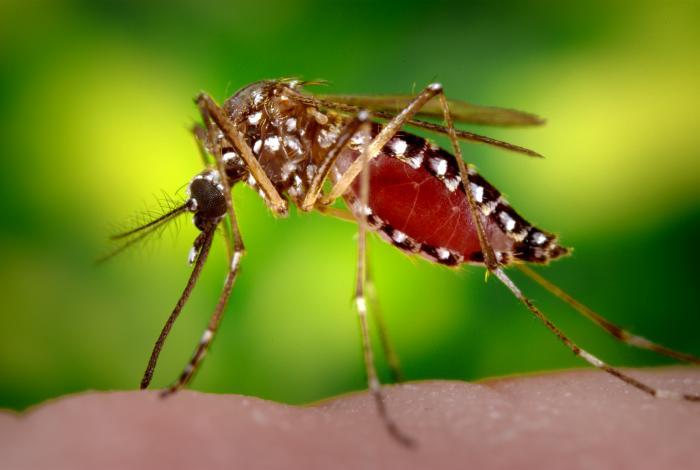Gene Drive Technology: Where is the future?

Gene drive technologies may one day help alleviate the burden caused by diseases transmitted by mosquitoes and other animal vectors. Credit: James Gathany
Gene drives have the potential to revolutionize approaches to major public health, conservation, and agricultural problems.
For instance, gene drives might one day prevent mosquitoes from spreading a variety of deadly diseases, including Zika virus, malaria, and others.
A form of genetic modification, the technology works by causing a particular genetic element to spread through populations, thereby making it possible to change species in the wild.
Despite the significant promise, caution is warranted, says a new report from the National Academies of Sciences, Engineering, and Medicine's Committee on Gene Drive Research.
According to the committee, gene drives raise a variety of ecological and regulatory questions that have yet to be answered.
For this episode of BioScience Talks, we're joined by committee co-chair James P. Collins of Arizona State University and committee member Joseph Travis of Florida State University.
They fill us in on the specifics of the report and on the future of gene drives.
To hear the whole discussion, visit this link for this latest episode of the Bioscience Talks podcast.
Media Contact
All latest news from the category: Life Sciences and Chemistry
Articles and reports from the Life Sciences and chemistry area deal with applied and basic research into modern biology, chemistry and human medicine.
Valuable information can be found on a range of life sciences fields including bacteriology, biochemistry, bionics, bioinformatics, biophysics, biotechnology, genetics, geobotany, human biology, marine biology, microbiology, molecular biology, cellular biology, zoology, bioinorganic chemistry, microchemistry and environmental chemistry.
Newest articles

Economies take off with new airports
A global study by an SUTD researcher in collaboration with scientists from Japan explores the economic benefits of airport investment in emerging economies using nighttime satellite imagery. Be it for…

CAR T–cell immunotherapy targets
Pan-cancer analysis uncovers a new class of promising CAR T–cell immunotherapy targets. Scientists at St. Jude Children’s Research Hospital found 156 potential CAR targets across the brain and solid tumors,…

Stony coral tissue loss disease
… is shifting the ecological balance of Caribbean reefs. The outbreak of a deadly disease called stony coral tissue loss disease is destroying susceptible species of coral in the Caribbean…





















